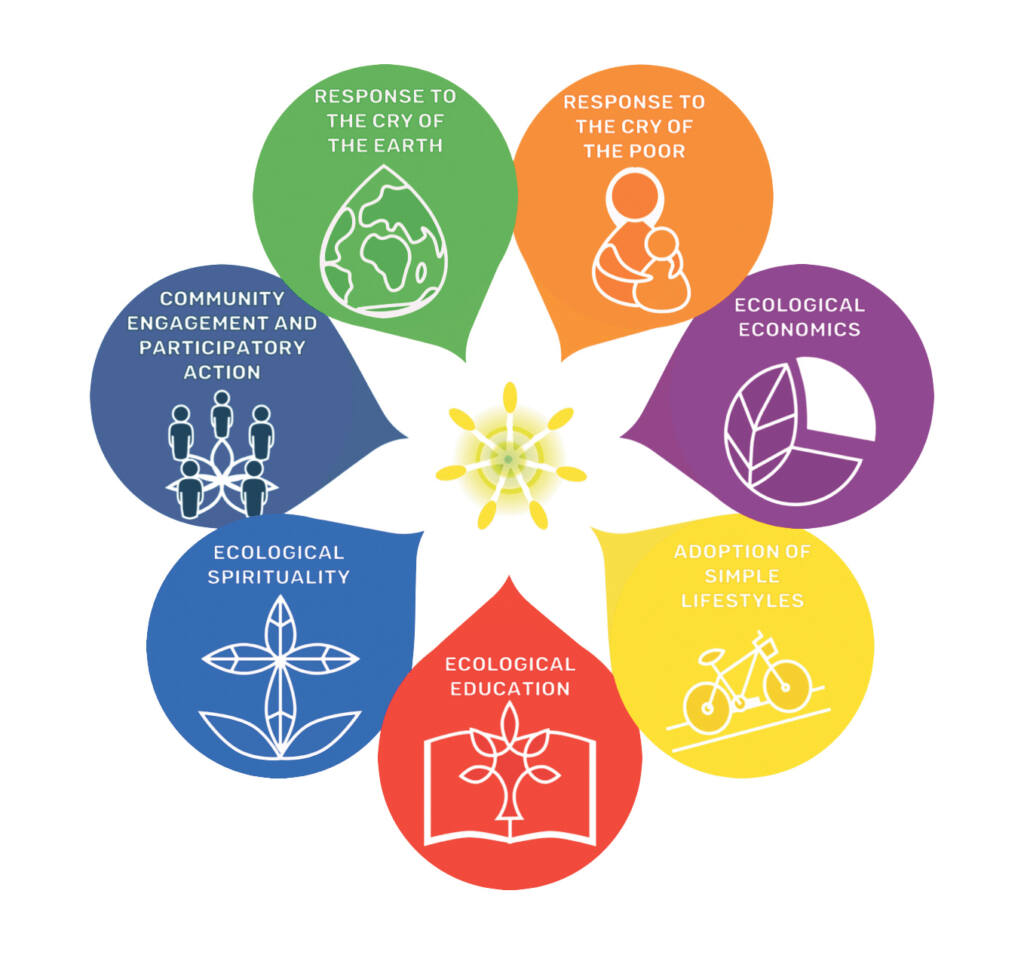Published in WelCom March 2021
Michael Fitzsimons

Caritas Aotearoa New Zealand has welcomed the Climate Change Commission Report which calls for ‘transformational and lasting change across society and the economy’ to address the climate crisis.
Caritas, the New Zealand Catholic Bishops’ Agency for justice, peace and development, urges widespread Catholic involvement in making submissions on the report, which are due by March 28, this year.
‘The Commission has rightly sought to balance various elements, recommendations for strong reductions in carbon emissions, and recognition of the need for a just transition,’ says Roger Ellis, Caritas Community Engagement Team Manager.
‘The Commission report also recognises the need for a long-term, bi-partisan approach to government policy on climate change. This is supported by Pope Francis in his encyclical, Laudato si’, which says we can’t continue with current models of production and consumption based on the intensive use of fossil fuels.’
Caritas says there are questions to be asked about some of the detail in the report and the short time frame allowed for consultation, ‘given the substantial and intergenerational ramifications of the changes proposed.’
‘It needs to be asked,’ says Roger Ellis, ‘whether emissions reductions could be even faster than what is proposed in the report, given the severe impact of climate change that many are experiencing now.’
Addressing climate change is a priority for Caritas and is one of its three advocacy priorities.
Caritas was involved in discussions around a Zero Carbon Act and strongly supported the establishment of an independent Climate Commission. It has been a participant in consultation workshops on the Commission’s work.
‘We emphasised the importance of taking on an integrated holistic approach, seeing co-benefits of change, taking on board Māori perspectives, and concern for the impact of transition on the poor and vulnerable. We’re pleased to see many of these issues addressed in the report,’ says Roger Ellis.
‘We look forward to the Commission’s final advice to Government and seeing how Government responds. New Zealand, as a developed nation that has benefitted from fossil fuel use and production, must play its part in transitioning with justice to a zero carbon world.’
Climate Change Commission Report
The Climate Change Commission Report, released at the end of January, found that New Zealand will miss its emissions reduction targets if it doesn’t engage in ‘strong and decisive action now’ and recommended ambitious limits on the amount of greenhouse gases the country would be allowed to release. The Commission says its targets can be met without the need for any new technology.
‘Transformational and lasting change across society and the economy will be needed but the Commission’s analysis shows the tools to start the work to reach our targets and address climate change in Aotearoa already exist.’
Those tools, however, are not currently being used to the full extent.
The Commission is recommending three budget periods – 2022 to 2025, 2026 to 2030, and 2031 to 2050 – with accelerating decreases in our carbon emissions over those timeframes. Changes proposed represent cuts from 2018 emissions of 2.1 per cent, 17.2 per cent and 35.5 per cent respectively. The Commission found that the cost of action was lower than previously expected – less than 1 per cent of projected GDP.
Acting sooner rather than later is imperative, says the Commission. ‘2050 is not far away, particularly if you consider the lifespan of infrastructure, vehicles, buildings – and people,’ the Commission wrote.
While the overall economy is likely to be unaffected or even benefit from the transition, certain communities may be disproportionately affected, says the report. The Commission recommends that the Government target assistance and support to low-income and Māori communities, which may bear the brunt of decarbonisation.
The report says decarbonisation will affect every part of the economy, with transport being one of the most important areas for change. Fossil-fuel use in heating and industry should also be phased out where possible.
The report envisions the ‘near complete decarbonisation of low- and medium-temperature heat used in industry, electricity generation, energy use in building and land transport.’
Stakeholders and members of the public can make submissions on the Report until March 28 and the Commission’s final recommendations will be released on May 31 this year.
To have input into the Commission’s process and to find more information visit its website at:
www.climatecommission.govt.nz/get-involved/our-advice-and-evidence/
www.climatecommission.govt.nz/news/our-draft-advice/
www.climatecommission.govt.nz/get-involved/consultation/

Pope on climate change
Pope Francis has devoted much of his papacy to teaching about care for the planet and has stressed the urgency of taking action to address climate change.
In 2015 he issued his landmark encyclical Laudato si’, which was a radical call for climate change action. The encyclical accepted the scientific consensus that climate change is principally a man-made phenomenon. Without prompt global action to reduce carbon dioxide emissions and slow the planet’s warming, it said, there would be profound environmental, social, political and economic consequences.
Pope Francis urged the world’s 1.2 billion Catholics to take action against the injustice of climate change.
‘There is an urgent need to develop policies so that, in the next few years, the emission of carbon dioxide and other highly polluting gases can be drastically reduced, for example, substituting for fossil fuels and developing sources of renewable energy,’ said the Pope.
In 2020 Pope Francis criticised world governments for their very weak response to the climate crisis. With a new sense of urgency, the Vatican launched a Laudato si’ Anniversary Year in 2020 and put in place a seven-year Laudato si’ Action Platform, addressing the seven Laudato si’ goals: response to the cry of the earth; response to the cry of the poor; ecological economics; adoption of simple lifestyles; ecological education; ecological spirituality; community engagement and participatory action.
Flood risk
A new report from Niwa the National Institute of Water and Atmospheric Research) says 94 New Zealand schools – including at least 11 Catholic schools – are at risk of flooding.
Niwa says sea-level changes could create flooding around school buildings and roads. Then it would be difficult for children to get to and from their classrooms. Infrastructure would be affected. Seawater in pipes would cause school toilets and sinks to back up.
Niwa says despite warnings of likely disruption, the Ministry of Education has few adaptation plans in place.
If a big storm hit today, Niwa reports that 31 schools would be at risk of flooding, with no sea-level rise factored into their plans. When the ocean is 50cm higher – a mark we’ll reach in the next 45 to 90 years – 65 schools could be affected. That will become 94 of our 2,500 schools when sea levels rise a metre.
The post Caritas welcomes climate report first appeared on Archdiocese of Wellington.
Review of End of Life Choice Act: submissions now open
General
Published on 31st Aug, 2024
The first review, overseen by the Ministry of Health, is currently taking place [..]
Sisters conserve rare flag
General
Published on 31st Aug, 2024
A rare military flag has received much needed conservation work from the Carmelite Sisters [..]
Letter from Archbishop Paul Martin
General
Published on 5th Jun, 2024
A Vatican-led review of an abuse complaint against Cardinal John Dew dating to the 1970s has conclud [..]
'No Faith in Fossil Fuels' Climate Action Week
General
Published on 22nd Apr, 2024
We invite you to participate in No Faith in Fossil Fuels Climate Action Week from 3 May to 12 May [..]
May 2024 Funding Round | Catholic Charities Foundation
General
Published on 1st Mar, 2024
Applications for the May 2024 Catholic Charities funding round are now open [..]
